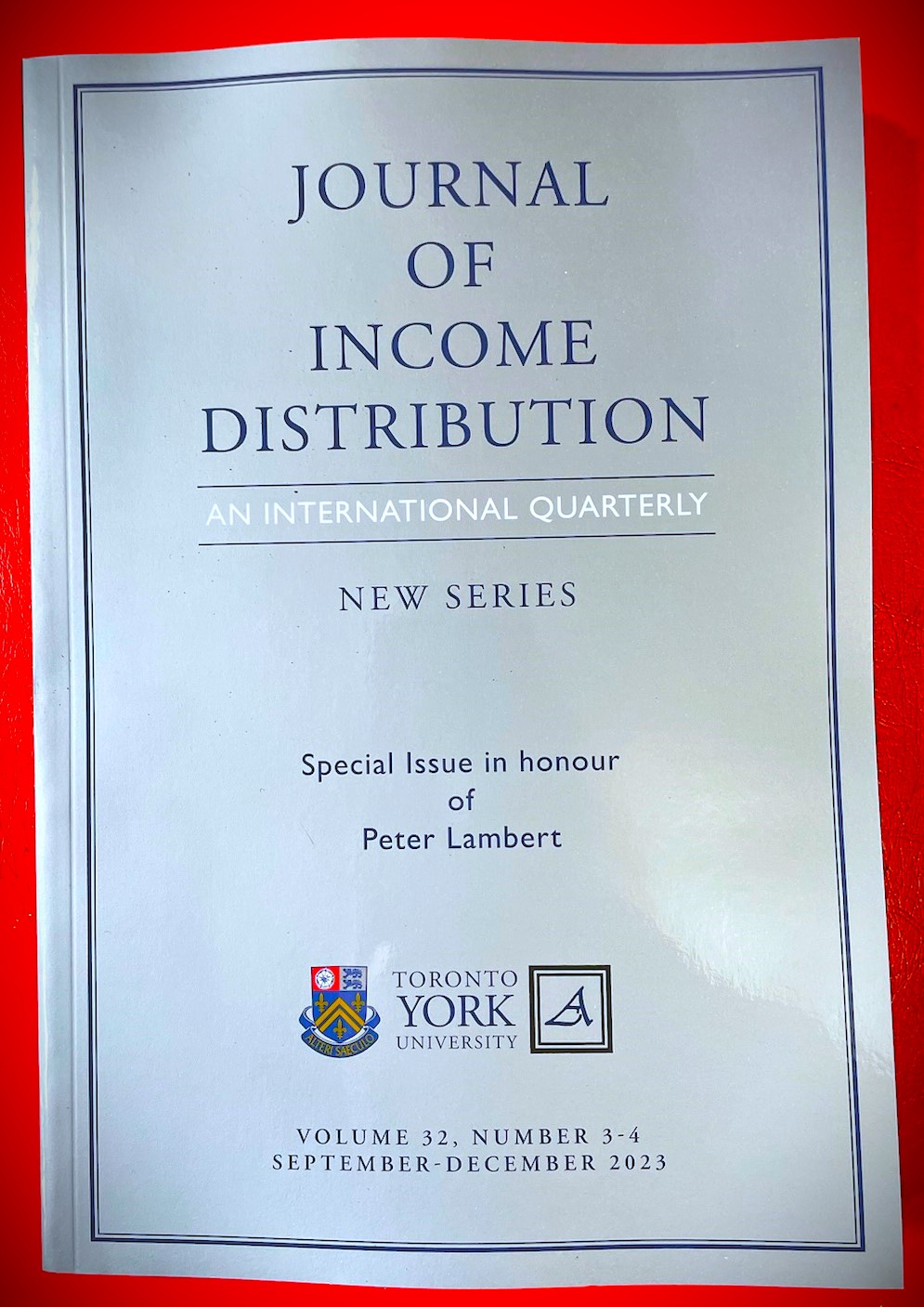Minimum Inequality Aversion and Welfare Ranking of Income Distributions
Keywords:
Lorenz dominance, generalised Lorenz dominance, Gini coefficient, almost Lorenz dominance, mean utility preserving transfer, welfare ranking, income inequalityAbstract
This article addresses a well-known issue in the application of generalised Lorenz (GL) dominance as a welfare ranking criterion, proposing a solution and providing a characterisation. The issue lies in the lack of an equity-efficiency trade-off in GL dominance, and its root cause is the inclusion of an inequality-neutral social welfare function (SWF) in the set of SWFs that support GL dominance. We propose setting a minimum inequality aversion and deriving an extended dominance condition, which is simply the GL dominance condition applied to utility profiles rather than income profiles. The extended condition is equivalent to Meyer’s (1977) second-degree stochastic dominance with respect to a function and can be characterised by a sequence of income transfers of the Diamond-Stiglitz (1974) type preserving mean utility. We illustrate the extended GL dominance and its associated Lorenz dominance using United States income data. Finally, we briefly outline how the newly developed idea of “almost dominance” (Leshno and Levy 2002, Zheng 2018) can further enhance the versatility of GL dominance as a tool for welfare evaluation.
References
Atkinson, A.B. 1970 “On the measurement of inequality”, Journal of Economic Theory 2(3): 244–263.
Bishop, J.A., J.P. Formby, and W.J. Smith 1991 “Lorenz dominance and welfare: changes in the U.S. distribution of income, 1967–1986”, The Review of Economics and Statistics 73(1): 134–139.
Clark, S., Hemming, R., and Ulph, D. 1981 “On indices for the measurement of poverty”, Economic Journal 91: 515–526
Diamond, P.A., and J.E. Stiglitz 1974 “Increases in risk and in risk aversion”, Journal of Economic Theory 8(3): 337–360. doi.org/10.1016/0022-0531(74)90090-8
Fields, G.S., and J.C.H. Fei 1978 “On inequality comparisons”, Econometrica 46(2): 303–316.
Foster, J., and Y. Jin 1998 “Poverty orderings for the Dalton utility-gap measures”, in S.P. Jenkins, A. Kapteyn, and B.M.S. van Praag (Eds.) The Distribution of Welfare and Household Production: International Perspectives Cambridge: Cambridge University Press. pp. 268-
Foster, J.E., and A.F. Shorrocks 1988 “Poverty orderings and welfare dominance”, in W. Gaernter, P.K. Pattanaik (Eds.) Distributive Justice and Inequality Berlin: Springer Berlin Heidelberg. pp. 91–110. doi.org/10.1007/978-3-642-73816-6_6
Hardy, G.H., J.E. Littlewood, and G. Pólya 1934 Inequalities Cambridge: Cambridge University Press.
Leshno, M., and H. Levy 2002 “Preferred by “all” and preferred by “most” decision makers: almost stochastic dominance”, Management Science 48(8): 1074–1085. doi.org/10.1287/mnsc.48.8.1074.169
Meyer, J. 1975 “Increasing risk”, Journal of Economic Theory 11(1): 119–132.
—– 1977 “Second degree stochastic dominance with respect to a function”, International Economic Review 18(2): 477–487.
Okun, Arthur M. 2015 Equality and efficiency: The big tradeoff Washington D.C.: Brookings Institution Press.
Rothschild, M., and J.E. Stiglitz 1970 “Increasing risk: I. A definition”, Journal of Economic Theory 2(3): 225–243. doi.org/10.1016/0022-0531(70)90038-4
Shorrocks, A.F. 1983 “Ranking income distributions”, Economica 50(197): 3–17.
—–, and J.E. Foster 1987 “Transfer sensitive inequality measures”, Review of Economic Studies 54(3): 485–497. doi.org/10.2307/2297571
Zheng, B. 2000 “Minimum distribution-sensitivity, poverty aversion, and poverty orderings”, Journal of Economic Theory 95(1): 116–137. doi.org/10.1006/jeth.2000.2687
—– 2016 “Almost Lorenz dominance”, Social Choice and Welfare 51: 51–63. doi.org/10.1007/s00355-017-1106-0





